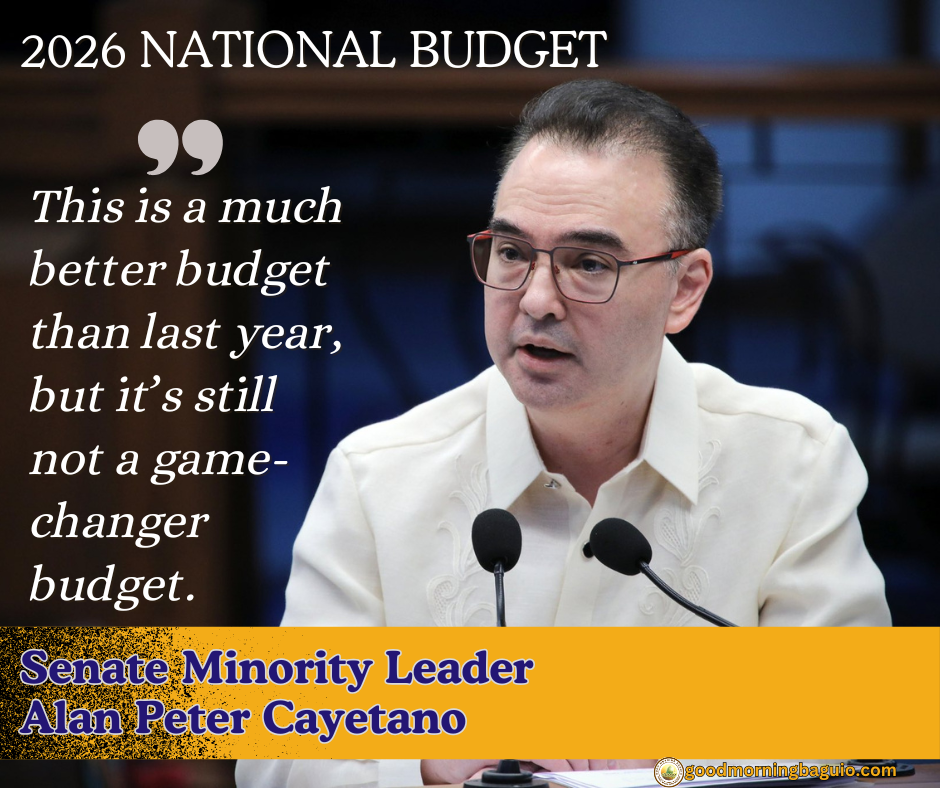
Baguio City eyes livable, inclusive, creative future by 2043
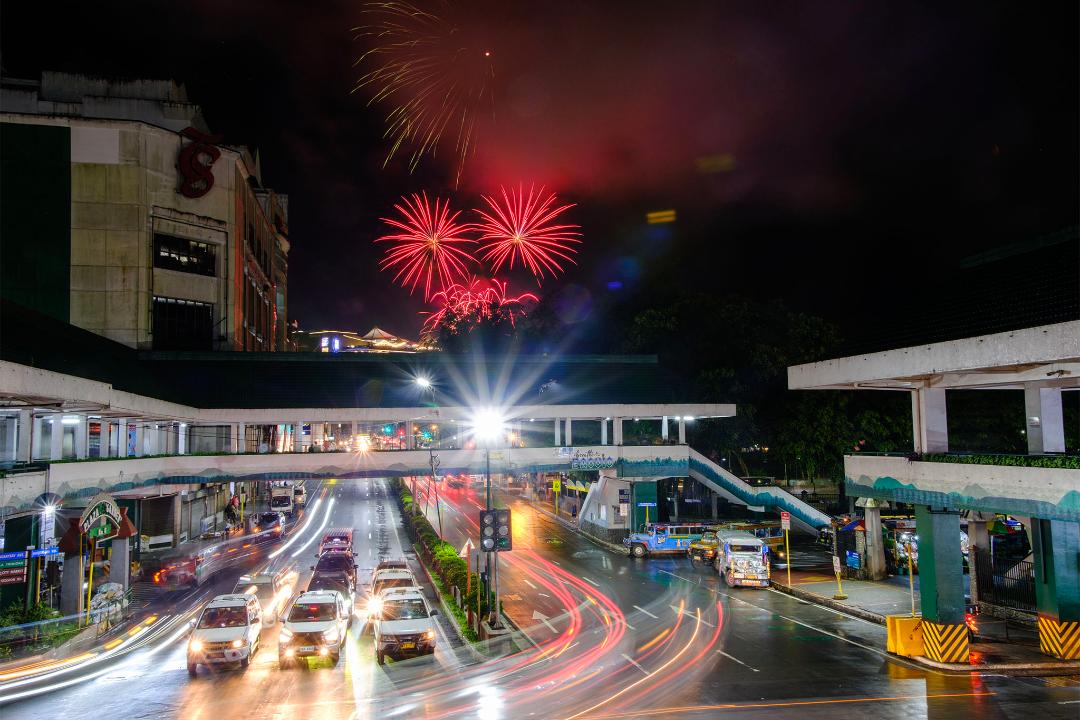
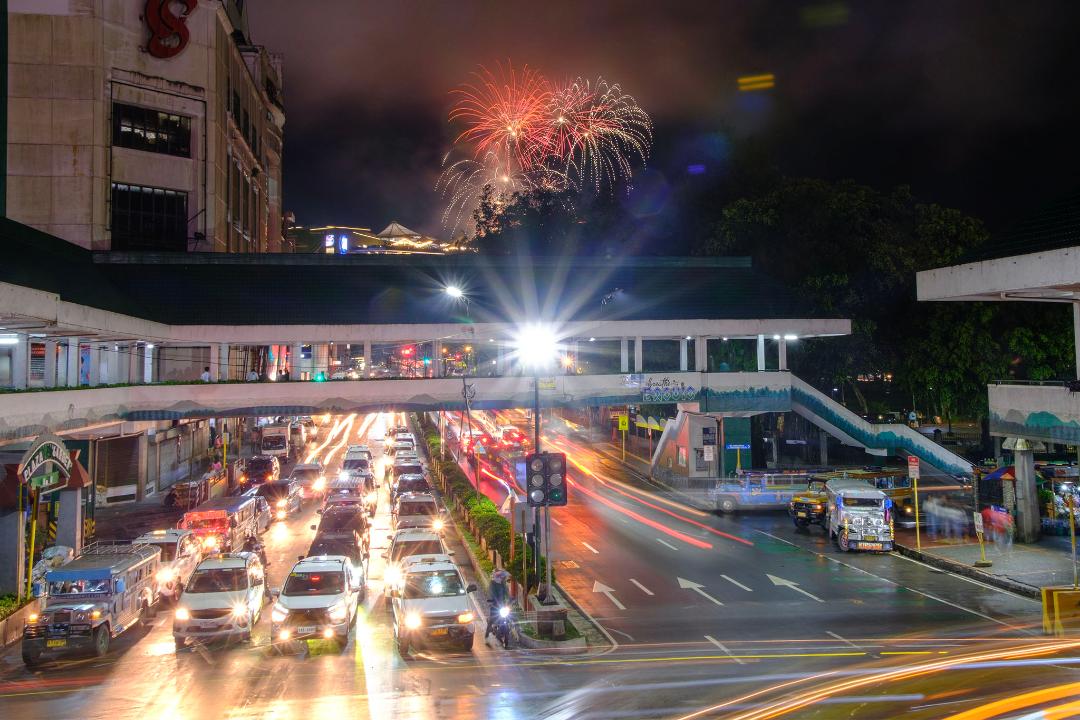
Magalong Charts Baguio’s Path to a Livable, Inclusive, and Creative City by 2043
BAGUIO CITY — Mayor Benjamin B. Magalong outlined Baguio City’s developmental direction in his final term as chief executive, anchored on the vision of building a livable, inclusive, and creative city by 2043.
In his State of the City Address (SOCA) delivered during the 116th Baguio City Charter Day Anniversary on September 1, 2025, the mayor detailed strategies to advance sustainability, resilience, good governance, and innovation—all aligned with the city’s long-term vision.
Commitment to the Sustainable Development Goals
Magalong reaffirmed the city’s commitment to the United Nations Sustainable Development Goals (SDGs), noting that Baguio had completed its first Voluntary Local Review (VLR) in June 2025.
He reported that the city showed “encouraging progress in sustainable cities, climate action, education, and economic growth.”
“The VLR is a tool that helps us see clearly where we stand, where we need to improve, and where to put our investments so that no sector is left behind,” he said.
The SDGs, adopted by the UN in 2015, consist of 17 global goals that call for action to end poverty, protect the planet, and ensure peace and prosperity by addressing issues such as hunger, inequality, climate change, and environmental degradation.
Building a Resilient City
Resilience remains a top priority. Under the Making Cities Resilient 2030 (MCR2030) program, Baguio aims to achieve full resilience status by 2026—four years ahead of the global target.
“This means strengthening our ability to withstand disasters, adapt to climate risks, and protect our people in times of crisis. A crucial step in this direction is improving our communications systems, so that warnings, emergency coordination, and vital information can reach our communities quickly and reliably,” Magalong said.
Governance and Accountability
To ensure effective service delivery, the city is implementing the Performance Governance System (PGS), a framework that emphasizes accountability and discipline.
Workshops with the Institute for Solidarity in Asia were recently held to measure performance and align programs with long-term goals for the next three years.
Preparations are now underway for the next Revalida assessment scheduled in December.
The mayor emphasized the importance of collaboration:
“The government cannot do everything alone. This is why we have embraced public-private partnerships as a way to bring in resources, expertise, and innovation while keeping the interests of our people at the center.”
Priority Infrastructure and Partnerships
Magalong highlighted several priority projects:
- Intermodal Transport Terminal – approved by the City Council and now open for competitive challenge.
- Market Redevelopment Project – approved by the City Development Council and endorsed to the City Council; consultations ongoing.
- Smart Urban Mobility Project – currently under consultation.
- Asin Hydro Project & Topinao Socialized Housing Project – soon entering negotiation stage.
Creative Center Proposal – under negotiation.
On infrastructure, the city will intensify efforts to resolve the long-standing problem of “spaghetti wires”, working closely with telecommunications companies and enforcement teams.
Advancing Food Security
Baguio is also boosting food security through its Smart Farming initiative. The program has introduced solar-powered hydroponics in Pinsao Proper and Dontogan, established demo farms across barangays, and built greenhouses for strawberry production to support both communities and schools.
The city is now seeking national government funding to expand the initiative and move closer to self-sufficiency.
Pushing Transparency and Innovation
For transparency, the city has joined the Open Government Partnership, taking steps to make governance more open, efficient, and accountable.
Baguio also plans to adopt blockchain technology for handling government documents, including financial records, bidding processes, and infrastructure reports.
“By securing these through blockchain, we ensure that they cannot be tampered with and are fully accessible for public scrutiny. We are working closely with a local company to make this possible, and by next week, we will be signing a Memorandum of Agreement to formalize this partnership. This is a step toward becoming a truly transparent city, where trust between government and citizens is built on systems that guarantee integrity,” Magalong said.
A Collective Journey
Reflecting on his last term, Magalong expressed hope that the foundations laid would make Baguio a city its people can be proud of.
“As it is the beginning of my last term, my only hope is that we have built a Baguio that many of you can be proud of. Because this journey was never about me, nor about what I could accomplish alone. It has always been about you and the belief we share that good governance is not only possible, but necessary. If there is any credit given, it belongs to all who chose to rise above apathy, who chose to participate. As we mark this year’s Baguio Day, let us be reminded that our progress is the collective strength of a community that refused to settle for less.”
Share
Recent Posts
- Benguet opens 2026 Coffee-Cacao Quality tilt
- Cordillera regional sports meet opens in Benguet
- BYD Sealion 5 taxi fleet debuts in Cordillera
- SM City Baguio welcomes Lunar New Year
- 30,000 attend Philippine International Hot Air Balloon Fiesta in Clark
Sections
- Accidents & Emergencies
- Ads & Marketing
- Agriculture
- Anniversaries
- Awards & Recognition
- Baguio's Embrace
- Banking
- Barangay Affairs
- Bazaars
- Business & Economy
- Calligraphy
- Celebrities
- Commercial Developments
- Community Hub
- Concerts
- Consumer Affairs & Entrepreneurship
- Corporate
- Corporate Social REsponsibility
- Creative Economy
- Cycling
- Digital Arts
- Diplomacy & Official Visits
- Diversity & Inclusion
- Education & Youth
- Entertainment
- Environment & Sustainability
- Esports & Streaming
- Events
- Fashion & Beauty
- Festivals
- Film & Media Arts
- Food & Dining
- Golf
- Governance & Policy
- Government & Public Assets
- Health & Wellness
- Holiday Events
- Home & Interior Design
- Indigenous Peoples Affairs
- Infrastructure
- Inspirations
- Jobs & Employment
- Law Enforcement
- Leadership & Appointments
- Legal Affairs
- Legislation
- Literature
- Local Government
- Local Heritage
- Martial Arts
- Milestones
- Mining
- Movies
- Olympics
- Pageants
- People & Personalities
- Performing Arts
- Pertempto
- Poetry
- Politics
- Power & Energy
- Promotions
- Public Health
- Public Safety & Security
- Public Welfare
- Real Estate
- Regional Updates
- Scripture
- Sports
- Technology & Digital Services
- Telecommunications & Digital Policy
- Tennis
- Theatre & Musicals
- Traffic & Transport
- Tributes
- Trustworthy Road
- Urban Development
- Visual Arts
- Weekly Horoscope
- World
Related Articles


Imee Marcos rejects 2026 GAA over “giniling budget”
Senator Imee Marcos rejects the 2026 GAA, citing cuts to flagship projects and reallocation of funds to “soft pork” programs. … Read More >Imee Marcos rejects 2026 GAA over “giniling budget”
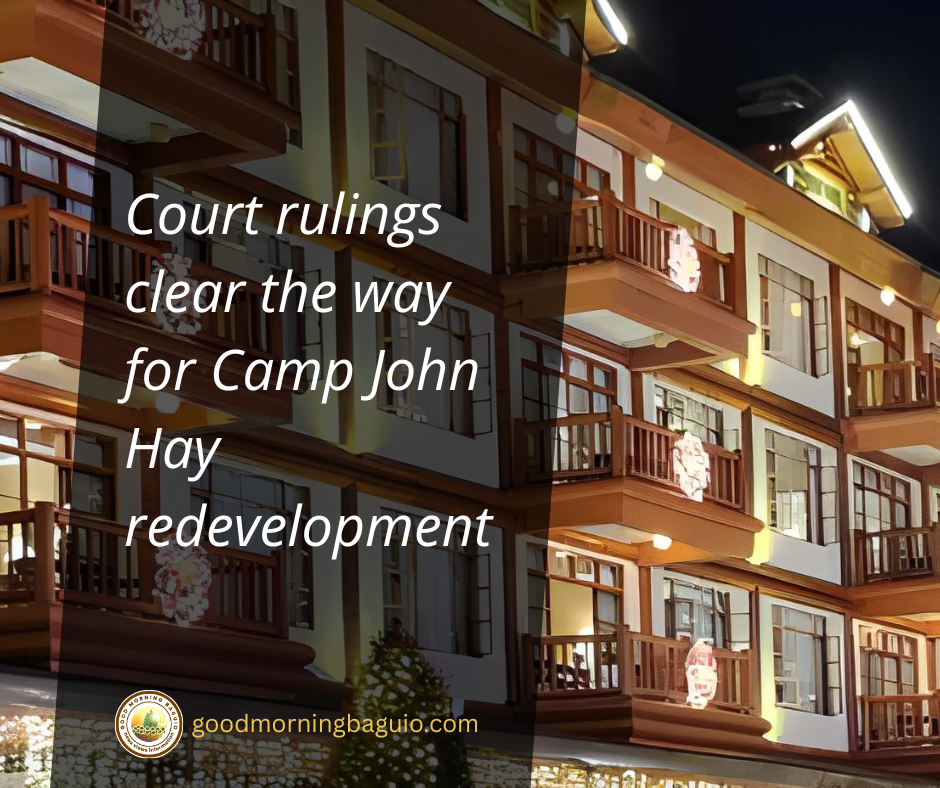
BCDA wins court cases over Camp John Hay
BCDA secures major court victories, reinforcing legal certainty and accelerating redevelopment of Camp John Hay as a premier investment hub. … Read More >BCDA wins court cases over Camp John Hay
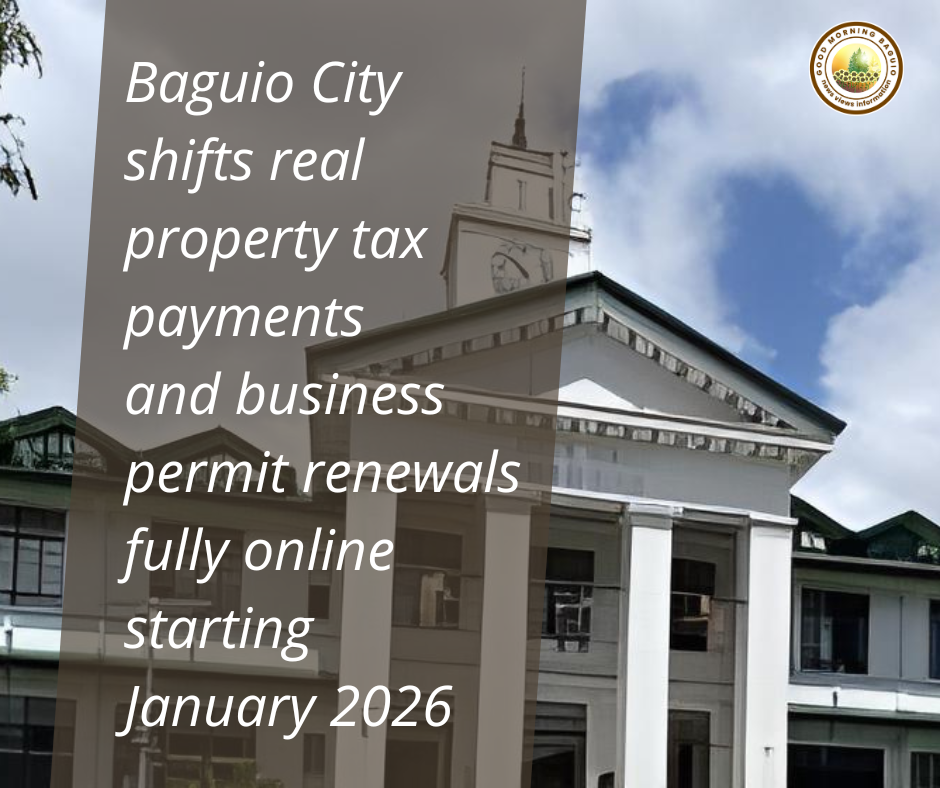
Baguio shifts RPT, business permits fully online in 2026
Baguio City shifts real property tax payments and business permit renewals fully online starting January 2026. … Read More >Baguio shifts RPT, business permits fully online in 2026
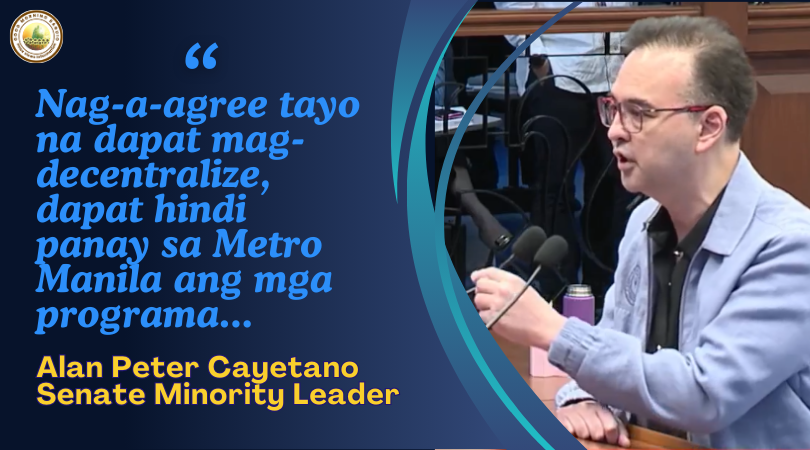
Cayetano pushes rural development, LGU aid in 2026 budget
Cayetano urges major amendments to the 2026 budget, pushing rural development, railway revival, and direct LGU support. … Read More >Cayetano pushes rural development, LGU aid in 2026 budget